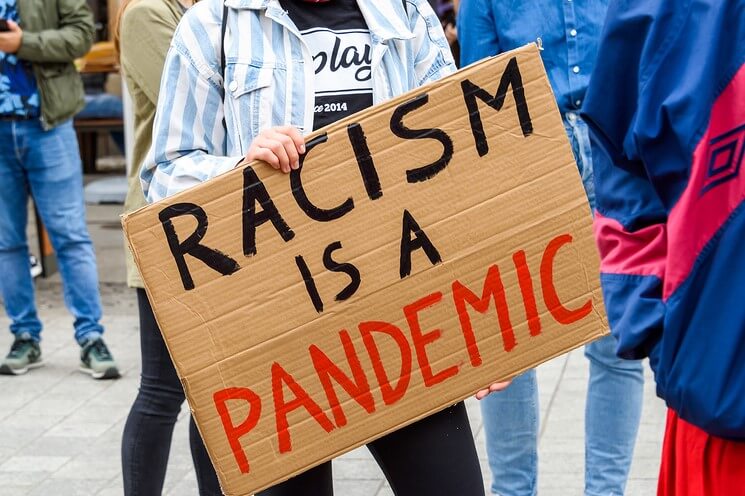What is the most vital step your church can take to address racism? It’s an important topic that deserves ongoing conversation. In the words of US President Joe Biden, “We have all seen the knee of injustice on the neck of Black Americans.” No matter where you land on the theological or political spectrum, having a Pentecost kind of faith calls people of faith and love to notice and “remove” that knee.
You may be wondering what you can do to engage your congregation and your community on these topics. Where should you begin? Enter into prayer and repentance? Learn how to be an ally of Black people? Call your people to make a community-wide impact? Though all of these are important actions, I suggest a more basic, yet vital, step to take.
Begin by defining terms.

Why is this the most vital step? It seems like it won’t result in quick change. Yet, defining terms allows people of differing backgrounds, understandings, and experiences to engage in the same conversation. Rather than talk past each other.
When asked the question, “Are you racist?” many people I know would answer “No.” That answer makes sense if you understand racism to be conscious hatefulness toward a person of a different race. Instead, conscious hatefulness is a more apt definition of prejudice not racism. Yet so many conversations on race and racism get stopped right there: “But I’m not a racist!”
Just as you wouldn’t conduct a Bible study without distinguishing between the Gospels and the Letters of Paul, or between the Old and New Testaments, so having a conversation on race and racism without using agreed upon terms would be equally frustrating and fruitless.
Racism is not so much about the particular actions of a prejudiced individual or group as it is about how prejudice is built into a society’s very systems and structures. Click To Tweet Especially when those systems and structures deliver vastly different results for White people and Black people or other people of color. In that case, every White person I know, including me, is racist. Not because you or I consciously chose to be, but because of the systems we are born into.
While I can’t speak to other countries, US society is built on a series of interlocking systems of wealth, education, housing, criminal justice, and media. These systems inherently extend privilege to White people while at the same time disadvantaging non-White people. Racism isn’t the only term that needs a deeper explanation. The idea of race itself requires exploration. Genetically speaking there are very few differences between the so-called races of humanity. When it comes to differentiating between peoples, even the Bible does not speak of race; rather it speaks of tribes and nations.
In a word, race isn’t real. It wasn’t real when Nazi Germany organized around a so-called Aryan race. And it’s still not real when people today try to make distinctions between Black and White “races.”
Now, that doesn’t mean White people can or should be color-blind. Because while racial distinctions aren’t real, racism is. Even if you can’t see it or haven’t experienced it.

Last year, I interviewed Gloria J. Browne-Marshall, author of Race, Law and American Society, for my Uncomfortable Conversations series. A civil rights attorney and professor of constitutional law, she was very knowledgeable and articulate. My takeaways from our hour together included the value of listening to each other, learning from each other, and using a shared vocabulary. These values make possible a new and positive future where everyone has a fair shot at a good life.
Transforming a society built on privilege for some and obstacles for others won’t be easy. Or comfortable. But it will bring us that much closer to Jesus’ big dream: “Thy Kingdom come, thy will be done, on earth as it is in heaven.”
So, begin by defining terms, then take the actions referenced above. Those actions will bring renewal of spirit, of love, and of justice.
Need some help getting your people on board with big, bold vision of renewal? Start by joining me for a free 90-minute seminar, “How to Create a Culture of Renewal.” In this seminar, we discuss seven “R’s” that describe current congregational cultures. In addition to racism, those R’s include reluctance, resistance, reactivity, ir-relevance, resignation, and regret. You’ll learn how to move past them into the life-giving state of renewal.


